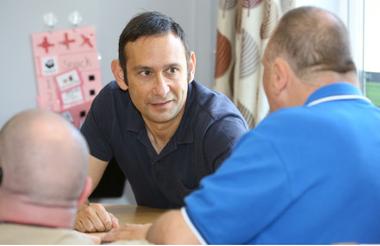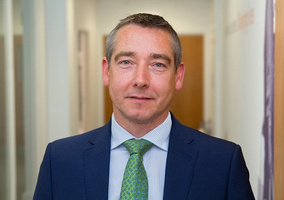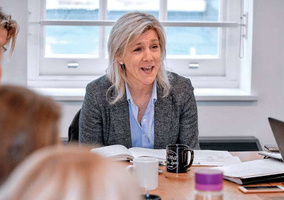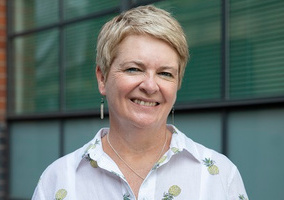The boss of a deafblindness charity has argued that every charity should be required to disclose disability and ethnic minority pay gap data.
Speaking to Civil Society News, Sense’s chief executive officer Richard Kramer said that equality, diversity and inclusion (EDI) must be put at the heart of everything the charity does.
His comments came after Sense recently published additional pay gap figures for the first time, revealing an ethnicity pay gap of 2.5% – slightly higher than England and Wales’s 2.3% average – and a disability pay gap of 0%.
Kramer said: “I think every charity should report on disability pay gap and ethnic minority pay gap, it should be mandatory for employers.
“If we’re going to shine a light on equality in the workplace, if we’re going to truly listen to the lived experience of employees from different backgrounds, we need to understand the data and address those inequalities.”
But he said that data on its own is not enough to make meaningful change; it is rather a good starting point charities can act upon.
Creating an inclusive culture
Sense currently employs 2,623 employees in 2,365 full-time roles. Overall, Black, Asian and minority ethnicity (BAME) employees make up 16% of total staff and hold more lower-pay positions while the proportion of white employees is 64%.
The charity is taking several steps to address its ethnicity gap. One of these is supporting the development and progression of ethnic minority staff as leaders through its ‘skills for care moving up’ programme.
Its programme offers support to people from BAME backgrounds who may feel they have not been given the opportunity to progress to senior leadership roles.
Kramer said: “That’s about giving people confidence and self-belief as well as knowledge to support them. As part of the course, people get an opportunity to mentor, shadow and share experiences with other peers. We’ve seen that graduates from that programme have been able to enhance their career at Sense.”
The charity has also partnered with South and City College Birmingham to recruit more people from these backgrounds. Sense workers get to spend a day with students in the health and social care course and offer them a glimpse of what it is like to work in this field.
Everyone who completes the programme at the college is then guaranteed an interview with Sense. “We’re beginning to see more people coming in that way,” Kramer explained.
Ultimately, he said, it is about redesigning the whole recruitment process. “It’s looking at anonymising personal details before shortlisting, changing the interview process and wanting to make sure we have a diverse panel.
“We’re going to continue with our practice of removing educational institutions from job requirements. We’re doing everything we can to look at our recruiting process to make it as equitable as possible.”
Tackling unconscious bias
One of the reasons for Sense’s 2.5% ethnicity gap is that it employs a smaller proportion of people from ethnic minority backgrounds in higher paid roles and a bigger percentage in lower paid roles.
According to Kramer, fewer BAME people apply for higher paid positions at the charity while there may also be some unconscious bias in the recruitment process.
He said that leadership plays a crucial role in tackling unconscious bias. All employers ought to have these difficult conversations and change practices to create inclusive workplaces.
NCVO’s 2022 UK Civil Society Almanac reported that 90% of the voluntary sector workforce is white. For Kramer, the sector simply does not know how to address inequalities in the workplace.
Asked why there is a lack of racial diversity in the charity sector, he recognised that people “get the equity perspective” whereby some individuals have unequal starting points and that the balance needs to be addressed.
However, he argued that organisations do not necessarily deal with these issues from a human perspective. “From a business level, we should have diverse teams because they lead to better decision-making and performance. But it’s also a human level and I think this bit is missed.”
EDI must be ‘everything’
Kramer said that charities often develop a strategy, appoint an EDI lead and potentially set up networks but then stop because they do not know what to do next.
“It stops at either the top or through the appointment over a dedicated post. It’s not filtering across the organisation. The key thing is that EDI must be everything. It’s about leadership, strategy and culture. It’s about ensuring that it is part of the agenda every day.”
As chief executive, he said the onus is on him to lead by example and ensure his charity has an open culture and his employees feel strongly connected to the organisation. This is why he decided to sit on Sense’s EDI board.
“If we embed EDI in everything we do, we’ll be more successful and through having different perspectives we’ll be more innovative, efficient, fun and creative.”
He admitted that change can only occur if the whole organisation is on board. “That’s about personal leadership. It’s not just about me or the head of equity and diversity. It’s about shifting that accountability to all staff so that everybody is taking responsibility.”
The other issue, he continued, is that people tend to have a narrow viewpoint of EDI, when they should also be looking at wellbeing and social mobility among other things.
“We’re so focused on the people we support that we neglect to get that same attention to the staff who work for us. That is a shortcoming of the voluntary sector and it needs to be addressed because we’re lagging behind the public sector and the private sector.
“We must support staff’s wellbeing because the workplace needs to be a safe place to be, where everyone has a sense of belonging and the freedom to be themselves. It’s critical that a strategy around wellbeing underpins and is part of the EDI approach. If we look after and support our staff and value their lived experience, we will enhance the support we provide to [beneficiaries].”
A tough year ahead
Kramer predicted that this financial year will be “the most challenging for all charities”.
Many are forecasting a drop in donations as people’s finances become tighter. Plus, charities like Sense are grappling with a social care crisis which lacks funding and is often treated as an afterthought.
“We need to continue to make the case for investment in social care so that it can be delivered. It has the same equity as the NHS, which is also under pressure,” Kramer said.
He said he is blessed to have faithful supporters who are emotionally connected to Sense and have continued to give during both the Covid-19 and cost-of-living crises.
However, he added that he is aware that an increasing number of charities are competing for funding, which is limited. “It’s difficult out there,” he deplored.
“It’s really important that we continue to develop innovative programmes and evidence the impact we’re making. I think it’s incumbent on all charities to do that if they’re going to continue to thrive.”
Reflecting on the future, he said: “I don’t know if that makes me a pragmatic optimist or a reluctant pessimist, but I know that the executive team is determined to work through this cost-of-living crisis and continue to amplify the impact we make on children and adults with complex disabilities, including those with deafblindness.”
Related articles












